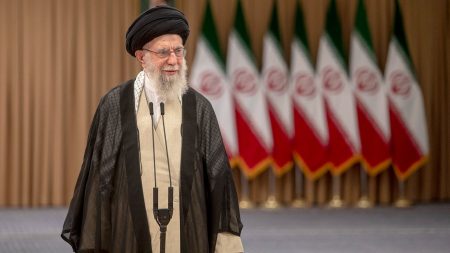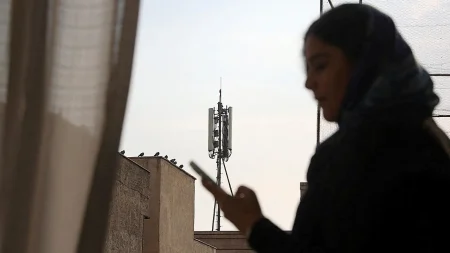The collapse of the Bashar al-Assad regime in Syria and the subsequent rise of Hay’at Tahrir al-Sham (HTS), aided by Turkey-backed forces, has created a power vacuum that presents a significant risk of an Islamic State (ISIS) resurgence. This precarious situation is further complicated by Turkey’s hostility towards the Syrian Democratic Forces (SDF), a crucial U.S. ally in the fight against ISIS. The SDF, primarily Kurdish, is viewed by Turkey as an extension of the Kurdistan Workers Party (PKK), which Ankara designates as a terrorist organization. This complex dynamic presents a formidable challenge for the incoming Trump administration, requiring a delicate balancing act between combating ISIS, maintaining relations with Turkey, and stabilizing the volatile Syrian landscape.
The SDF, instrumental in the initial defeat of ISIS in 2019, now finds itself under increasing pressure from Turkish-backed forces. Recent attacks have resulted in SDF casualties, further straining resources and diverting attention from the ongoing efforts to suppress ISIS activity. This division of focus undermines the SDF’s capacity to effectively counter the growing ISIS threat, exploiting the instability created by the Assad regime’s downfall. Experts warn that ISIS thrives in ungoverned spaces, utilizing power vacuums and political turmoil to establish footholds and regain strength. The current situation in Syria, with its fragmented political landscape and weakened security apparatus, provides fertile ground for ISIS resurgence.
The current Biden administration recognizes the urgency of the situation and has intensified its campaign against ISIS, conducting airstrikes targeting ISIS leaders, operatives, and camps. These efforts have yielded some success, including the elimination of a key ISIS leader. However, the overall security situation remains fragile, with ISIS demonstrating its resilience through continued attacks and the seizure of former Syrian military weapon depots. The SDF, despite facing increasing pressure from Turkish-backed forces, has also continued operations against ISIS, capturing terrorists and suspected collaborators. The cooperation between the SDF and the international coalition remains crucial in containing the ISIS threat, but the sustainability of these efforts is uncertain given the escalating tensions with Turkey.
The incoming Trump administration inherits this complex and volatile situation, facing the difficult task of preventing an ISIS resurgence while navigating the intricate relationship with Turkey. The inherent conflict between Turkey’s strategic interests in Syria and the U.S.’s reliance on the SDF presents a significant dilemma. Turkey’s ambition to dismantle the SDF, coupled with the increasing instability in Syria, creates a dangerous breeding ground for ISIS. The Trump administration will need to carefully calibrate its approach, potentially seeking ways to address Turkey’s concerns without compromising the effectiveness of the SDF in the fight against ISIS.
The Biden administration’s call for continued support for the SDF underscores the group’s essential role in counterterrorism efforts. However, Turkey’s unwavering hostility towards the SDF presents a critical obstacle. The Trump administration will need to engage in delicate diplomatic efforts to mitigate tensions between Turkey and the SDF, potentially exploring avenues for dialogue or negotiated settlements. Finding a solution that satisfies both Turkey’s security concerns and the need to maintain a viable partner in the fight against ISIS will be paramount. Failure to address this issue effectively could have dire consequences, paving the way for an ISIS resurgence and further destabilizing the region.
The incoming Trump administration faces a complex and multifaceted challenge in Syria. Balancing the urgent need to counter the growing ISIS threat with the imperative to maintain a strong relationship with Turkey, a key NATO ally, will require a nuanced and strategic approach. The success of the Trump administration’s Syria policy will hinge on its ability to navigate these competing interests, mitigate tensions, and foster a stable environment that prevents the resurgence of ISIS and ensures the long-term security of the region. The stakes are high, and the choices made by the new administration will have significant ramifications for the future of Syria and the broader Middle East.














